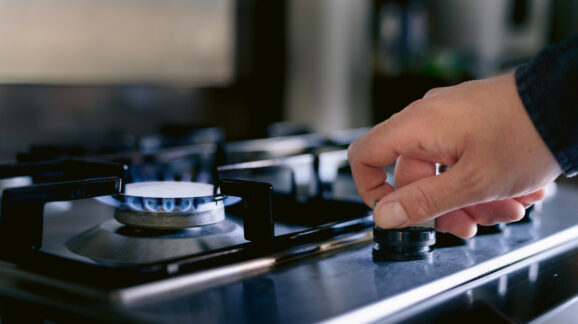Biden admin appliance regulations are bad for small businesses and homeowners

Photo Credit: Getty
Department of Energy (DOE) bureaucrats are making 2023 a bad year for homeowners with an avalanche of proposed and final appliance regulations impacting stoves, washing machines, ceiling fans, furnaces, refrigerators, dishwashers, and air conditioners. Each threatens higher appliance prices, compromised performance, and reduced choices. This regulatory onslaught also hurts small business owners, which was the subject of a November 8 House Small Business Committee hearing.
For example, my written testimony to the committee notes that DOE’s proposed efficiency standards for stoves affects both homes and businesses. Although the proposal is specific to consumer cooking products and not the commercial-grade models that are separately regulated, we all know that these consumer stoves are also used by many small businesses. This includes a large number of catering businesses run out of people’s homes, many of which make cuisine styles in which cooking with gas is absolutely indispensable. However, the proposed efficiency mandates would eliminate some of the features that give gas stoves an advantage, such as the very high heat settings needed for such tasks as searing and stir-frying. This is simply unacceptable for many in the restaurant and catering business.
The proposed stove rule is a part of the Biden administration’s larger war on natural gas use in favor of the electrification of everything for the sake of climate change. This agenda hurts the many small businesses that rely on natural gas for cooking, heating, or any other purpose. DOE itself admits that gas is three times cheaper than electricity on a per unit energy basis, even as it advances appliance regulations that tilt the balance away from gas and towards electric versions.
And it isn’t just stoves. As with homeowners, many small businesses have to grapple with multiple new appliances regulations that they never asked for.
Beyond the impact on small businesses that rely on using these appliances is the impact on those who make them. Federal regulations often pose disproportionate hardships on small businesses, especially small manufacturers, including through past and pending appliance regulations.
Fortunately, this hearing was part of the congressional pushback against such federal meddling. We have already seen bipartisan bills pass the House that would block new stove regulations. There is also a bill that aims to make prospective reforms to the program.
But the best reform is to sunset DOE’s standard setting authority entirely. Doing so would have no downside, only upside for small businesses. Any business owner who actually wants to use the kinds of appliances favored by DOE will always be free to do so, with or without these regulations. The only thing federal mandates do is force government’s particular preference on everyone. In the meantime, Congress should consider using its authority under the Congressional Review Act to take on each and every one of these rules that poses hardships on small businesses.